Are you seeing fungus inside your camera lens? If yes, you will be definitely looking for a solution to remove it permanently.
In this guide, I will share the complete solution for camera lens fungus cleaning. I will also share the different methods you can use to keep your camera lens safe from fungus.
What is Camera Lens Fungus?
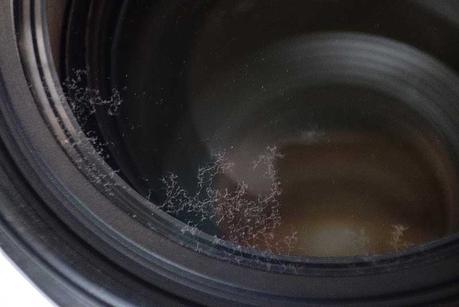
When you expose the camera lens to dust and moisture for a long period of time, the dust and moisture will enter inside the lens.
The spores present in the dirt will grow into fungus in the glass elements inside the lens because of the presence of moisture. This fungus is referred to as Camera Lens Fungus.
How to Look for Fungus in Your Lens?
Sometimes, it will be easy to fix the mold in camera lens if you can catch it in the early stage. For that, you need to know how to look for it.
First, you need to remove the camera lens from the camera body. If the lens is lying separately, make sure to remove the front and rear camera lens caps.
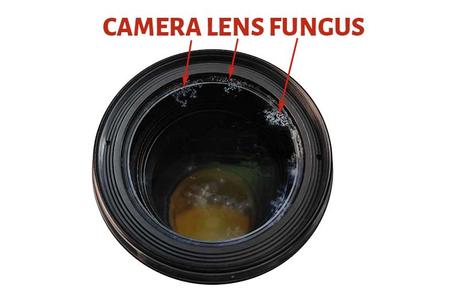
The next part is the visual inspection. For inspecting, you will need a good amount of light. Point your lens to a bright section and look through one end of your lens. Try positioning the lens at different angles.
Check if you are able to see any white webbing. If you find any, there is a fungus in your lens. Otherwise, your lens is free from fungus.
Will Fungus in Camera Lens Affect Picture Quality?
If there is too much fungus in different glass elements of the lens, it can affect the image quality.
If there is only a small webbing in one or two elements, you will not see any impact on the picture quality.
Will Fungus Damage Lens?
The fungus in the lens is due to the excessive moisture.
Apart from the glass elements, there are electronic and rubber parts inside the lens. Excessive moisture can result in the wear and tear of rubber parts.
It will also affect the electronics. Thus, if fungus continues to grow in the camera lens it can lead to permanent damage.
Is Lens Fungus Permanent?
Camera lens fungus can be permanent if you don’t take appropriate measures to remove it.
Will Camera Lens Fungus Expand to Other Areas?
The fungus inside your camera lens can expand and grow in other areas if you continue to store it in a highly humid area. If you can keep it in a place that is clean and low in humidity, you can avoid this growth.
How to Protect Camera Lens from Fungus?
I will share all the different ways that I use to protect my camera lenses from fungus.
1.Use a Lens Coat to Avoid Contact with Water
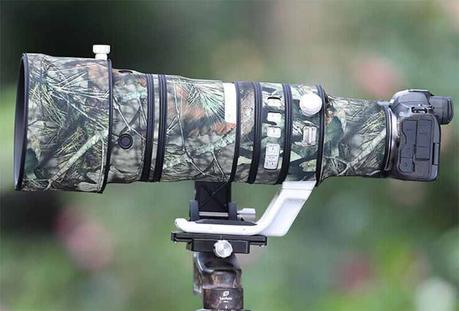
I strongly recommend using a lens coat for your camera lens. Make sure the lens coat is capable of repelling water and dirt from the lens.
Thus, if your camera gear comes in contact with contact with water and dirt, you can remove it immediately. Thus, you can avoid the moisture build-up around the lens.
2. Use Silica Gel Packets in Camera Bag
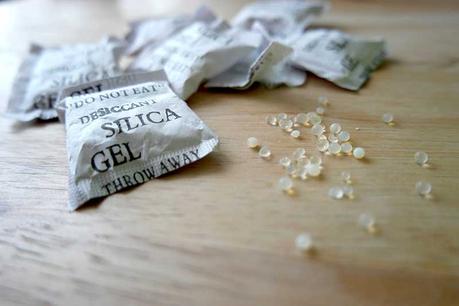
Always keep a few silica gel packets in your camera bag. When you carry your camera gear in the bag, the silica gel will absorb the moisture if any. Thus, it will help to protect the camera from fungus.
Also, you must change these silica gel packets every 6 months. Once it is fully saturated with moisture, it will no longer be able to do the job. So, replacement is essential.
3. Always Keep Camera Gear in a Dry Cabinet When Not in Use
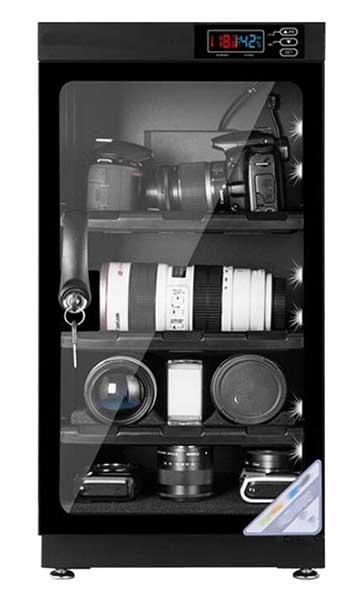
It is a good idea to invest in a good camera dry cabinet. Also, make sure to buy a high-quality one rather than going for cheap ones.
You can set the humidity levels (RH) in the range of 40 to 45 percent. It is the ideal humidity level for storing your camera gear.
4. Clean Lenses After Shoot
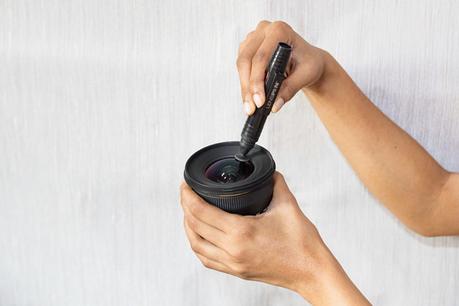
Camera, being an electronic product is known to attract dust and dirt. So, you must clean your camera and lenses, especially after an outdoor shoot.
You can do the cleaning process before storing it. Make sure to invest in the right camera and lens cleaning products to do the job.
You can refer to this guide for cleaning camera lenses and filters.
How to Remove/ Clean Fungus in Camera Lens?
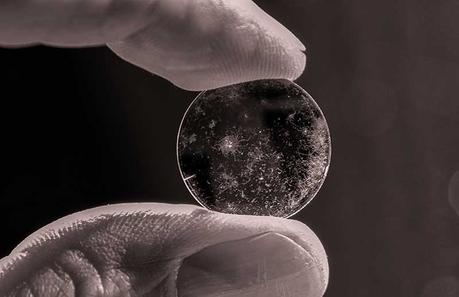
You need to open the lens to remove fungus inside camera lens completely.
It is always good to use the service of an authorized professional rather than cleaning it by yourself. They will have appropriate jigs and tools to disassemble, clean, and reassemble the camera lens.
If you try to do it, there is a chance that you may end up with a non-working camera lens.
Is It OK to Buy a Camera Lens with Fungus?
If you plan to buy a used camera lens with fungus, you need to do it at your own risk.
If the fungus is very small and it is not affecting the image quality, you can always give it a try. You need to test the lens with a camera body to confirm the image quality.
If there is too much fungus, it is better not to buy such lenses. You will end up wasting money on its cleaning.
Will Fungus Damage the Camera Sensor?
Fungus will not damage the camera sensor if you clean the sensor at regular intervals.
There will be an inbuilt auto sensor clean feature in all interchangeable lens cameras. You can use it to do a basic cleaning.
If you are still not able to remove it, you can always give it to a professional cleaning service.
Does Exposing Camera Lens to Sun Kill Fungus?
Exposing the camera lens to the Sun can kill the fungus. It is possible with the help of the UV light present in the sunlight.
You need to remove both the lens caps and expose the lens to the sun. Also, remove any UV filter attached to the lens.
Make sure not to look through the lens. The lens will act as a magnifying glass and it can burn your eyes.
But it will not eliminate the fungus completely. The spore will be still present inside the lens. It will lie dormant. Once the temperature and humidity conditions become favorable, it will start spreading again.
Does Fungus Removal Impact the Image Quality?
The removal of fungus from the lens does have an impact on the picture quality for certain types of lenses.
There are lenses that come with a protective coating on the inner glass elements. This coating helps to improve the quality of light reaching the camera sensor.
When the fungus is present on these glass elements and you give it for removal, the layer of coating will be removed during the cleaning process.
If the glass elements do not have any kind of coating, the fungus removal process will not affect the image quality.
Will Camera Lens Fungus Reappear Later After Cleaning?
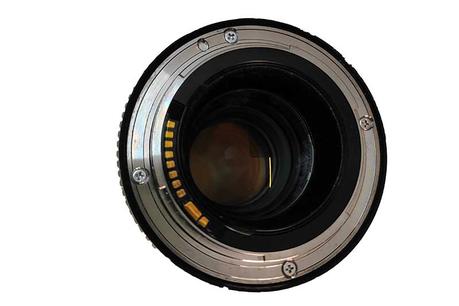
The lens will be free of fungus once the cleaning process is complete. But you need to store it in a place with appropriate humidity levels.
If the moisture is more in the storage area, there is a chance that the fungus will start reappearing on the lens.
It is always good to invest in a camera dry cabinet for storing your camera gear.
Is It Possible to Remove Lens Fungus Without Opening the Lens?
The camera lens fungus generally occurs inside the glass element of the lens. So, it is not possible to remove fungus from lens without opening it.
Is It OK to Clean Camera Lens Fungus by Yourself?
If you try to remove the fungus by yourself, you may end up breaking your camera lens. It is because you need to open your lens for cleaning.
So, it is always better to use the service of an authorized and experienced person.
If you are confident about cleaning by yourself, you can always give it a try.
How much will It Cost to Remove Fungus from the Camera Lens?
The lens fungus cleaning cost will vary for different lenses. The cost will be less for smaller lenses and more for the bigger ones, especially the prime telephoto lenses.
The cost is also dependent on the camera lens brand. The Canon lens cleaning cost will be different from Nikon, Sony, or other camera brands. You need to check with your authorized service center to know the exact rates.
Does the Camera Lens Warranty Cover the Camera Lens Fungus Issue?
The lens warranty will not cover the cost of removing the fungus from the lens. You need to spend from your pocket to remove the fungus completely from the lens.
Are All Camera Lenses Prone to the Fungus Issue?
You can get two types of camera lenses. They are the weather-sealed ones and the non-weather-sealed ones.
If you compare these two lenses, the non-weather sealed lenses are more prone to fungus attack. It is mainly due to their cheap construction that allows moisture and dirt to get inside.
From my experience, even weather-sealed lenses will get fungus when you expose them to humidity for a long period of time.

